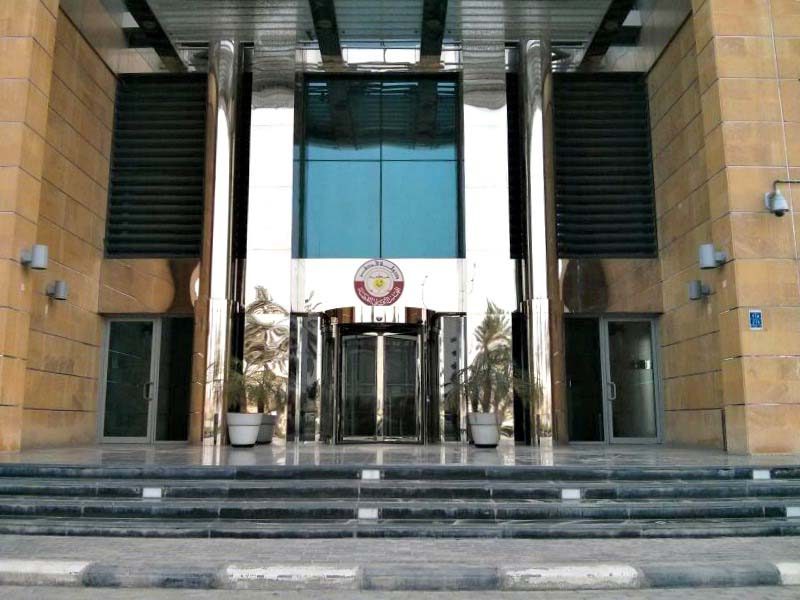
With reporting from Riham Sheble
As the population climbs and the number of court cases in Qatar continues to build up, legal experts have been working on finding new ways to clear the ensuing trial delays and backlogs.
For years, witness no-shows, last-minute requests for evidence and other tactics have been drawing out court cases in Qatar.
On average, it takes between one to two years for a case to be heard and a verdict rendered, according to local lawyer Yusuf al-Zaman. But the appeals process after a lower court’s ruling can drag on for five years or more, he added.
Prolonged trials can financially debilitate some individuals, while causing others to lose faith in the legal system, al-Zaman said.
“Delayed justice is a form of injustice,” he said.
Several of the high-profile trials currently taking place in Qatar illustrate the lawyer’s point.

Recent hearings of the long-running Villaggio Mall fire appeal have been marked by frustration from the relatives of the victims, including one who stormed out of a December hearing in protest.
Meanwhile, family members of murdered American teacher Jennifer Brown have said they are having trouble paying for legal representation in Qatar as the trial of her accused killer inches along more than two years after her death.
The Qatar government is in the midst of revising laws that regulate certain court procedures, which some lawyers see as an opportunity to address issues that cause cases to become bogged down.
There’s also been talk of creating new courts specializing in certain legal areas – such as commercial law cases, for example.
Members of the Qatari Lawyers Association met late last month to discuss the new draft law and proposed several measures aimed at speeding up hearings.
Proposed solutions
The growing volume of cases coming before Qatar’s courts is one reason trials take so long, lawyers say.
As the country’s population increases and the economy diversifies, more criminal and civil disputes are bound to emerge. According to al-Zaman, 67,552 cases were heard before the country’s courts in 2008.
By 2013, that had climbed 20 percent to 81,169 cases, he said.

There’s also been a “recognizable” increase in the number of judges alongside the growing caseload.
But lawyers at last month’s session implicitly admitted that many delays come from within their own ranks.
Currently, lawyers are permitted to submit evidence or other supporting documentation at any point during the course of a trial as long as a date for closing arguments has not been set.
This creates delays as lawyers request more time to put forward evidence, which in turn can force judges to postpone cases to ensure everyone has sufficient time to review the new material.
Lawyer Ali al-Khanji, who was previously the deputy chairperson of Qatar’s Court of Appeal, said the mechanism is being used improperly:
“It is a privilege that is abused by opponents in a lawsuit in order to spite each other (and) stall proceedings … (It also) means that one party does not know what the other party has in store for them all through the legal process.”
He suggested making it mandatory for a plaintiff to file all relevant and available documents to the court registry at the onset of the legal process. Similarly, al-Khanji said the defendant should submit all documents by the first hearing.
This would ensure that both parties are full prepared early on in the trial.
Members of the lawyers’ association also discussed the problem of absenteeism among witnesses summoned to appear in court.
Acknowledging that it was sometimes difficult to discern whether the individual had received the notification that his or her presence was required, Al-Khanji suggested that the court start contacting witnesses via email and SMS messages.
The government’s timeline for implementing reforms remains unclear.
Thoughts?







